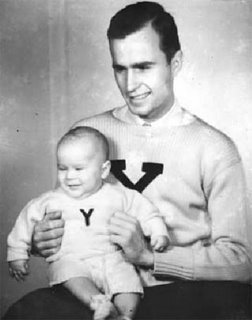
When I was a kid at Westwood Elementary in Friendswood, I and every other reader in the school were in a race to check out Where the Sidewalk Ends. That was before Barnes and Nobles or Borders when books were still something to be checked out of the library. The book was so popular because the internet wasn't around and Atari was still something that most people couldn't afford or rejected on principle, and because it was full of poems like "Sister for Sale" and "Ickle Me, Pickle Me, Tickle Me Too" (who, incidentally, went for a ride in a flying shoe . . .). But many was the time that our weekly library hour came and I rushed to the "S" section of the poetry section to find it already gone.
Right next the vacancy that Silverstein should have occupied was a book called Hodgepodge which means, if you don't know, "a little bit of everything." It had a little poetry (the funny, kid kind), some riddles, and even some short stories. I found that, all-around, it was a pretty good substitute for other book, and better yet, it was always waiting patiently for me on the shelf. Here is a "Hodgepodge" of some of my thinking over the last couple of weeks.
Starbucks is sweet.
I guess that I should be one of those people who rejects corporate coolness, and in general, I am. When in
But when in
So when I get to Starbucks, I don't scoff. I sit myself down outside in the familiar faux wicker chair, listen to the familiar canned jazz, look around at the Taiwanese version of American Starbucks customers, and enjoy a little respite from my otherwise off-kilter world.
Higher Abortion Rates Equal Less Crime.
This is not an argument for abortion; rather, it's just an acknowledgement of the hypothesis that more the increase in abortions soon after Roe vs. Wade probably had a lot to do with the declining crime rates in the 1990s. I recently read Levitt's Freakonomics and found this to be one of the more interesting points. (Other interesting topics included cheating Sumo wrestlers and a man who was able to relate honesty to bagel consumption.) In a nutshell, the 1990s were supposed to go to hell in a hand basket. All the experts foresaw skyrocketing numbers of robberies, rapes, and murderers. But somehow they all ended up with egg on their faces.
So what was the driving force behind this falling of? Was it better parenting skills? Was it better law enforcement or CSI techniques? Was it the rising economy? Well, maybe . . .
But according to the statistics, it had a lot more to do with the number of future criminals who never got the chance. The women most likely to have abortions were those in difficult circumstance -- poor, abused, uneducated, alone. Their children were likely to have grown up in impoverished circumstances with little supervision and too many opportunities to get in trouble. At risk, you might say. Their coming of age corresponded with the drop in crime rates in the 90s.
While advocating abortions to prevent crime is, in my opinion, far too Swiftian, there are a host of arguments surrounding the issue. For example, the ready availability of birth control or real sex education in schools. Choices other than abortion that could still allow women to avoid unwanted pregnancies, because someone -- whether it be mom, sister, grandma, adoption agencies, or the criminal justice system -- will have to deal with the consequences.
Denial: It's Not Just a River in
That's Bill Maher's line, not mine, and of course refers to the intelligence of President Bush. I like Bill. He's funny.
Bush isn't stupid, however -- just stubborn and a little crazy. At least that's the impression that I got of him after reading the new Woodward book, State of Denial. Mostly, the book just blamed everything on Rummsfield. It didn't say anything that I didn't already know (Shouldn't have gotten into the war, great takeover, no plan for how what to do next, everything seriously ‘effed’ up now.)
I think that it's much too easy to just view things as Rummsfield's fault. He smells like a scapegoat. No, I think that the buck has got to stop with Bush. And I even admire the President a little bit for sticking by his man when the chips are down.
But it's just another illustration of why Bush shouldn't be there in the first place. He's not dumb, but he's not the right man for the job. So much of the bad that has happened in the last 6 years is directly attributable not to his malice, but to his mistakes.
Emerson said, "Speak what you think today in hard words and tomorrow speak what tomorrow thinks in hard words again, though it contradict every thing you said today. " It's OK if you were on Bush's side to begin with. He was an attractive candidate. It's also OK now if you realize that it's time for a change. (Not that the democrats look that much better . . .)
On a side note, I watched Gore's movie over the weekend and thought to myself: Where was that guy during the election? He was so calm, so inspiring, so not-stiff. What a time to pull it out -- 6 years later.
Poor timing, in my opinion.



